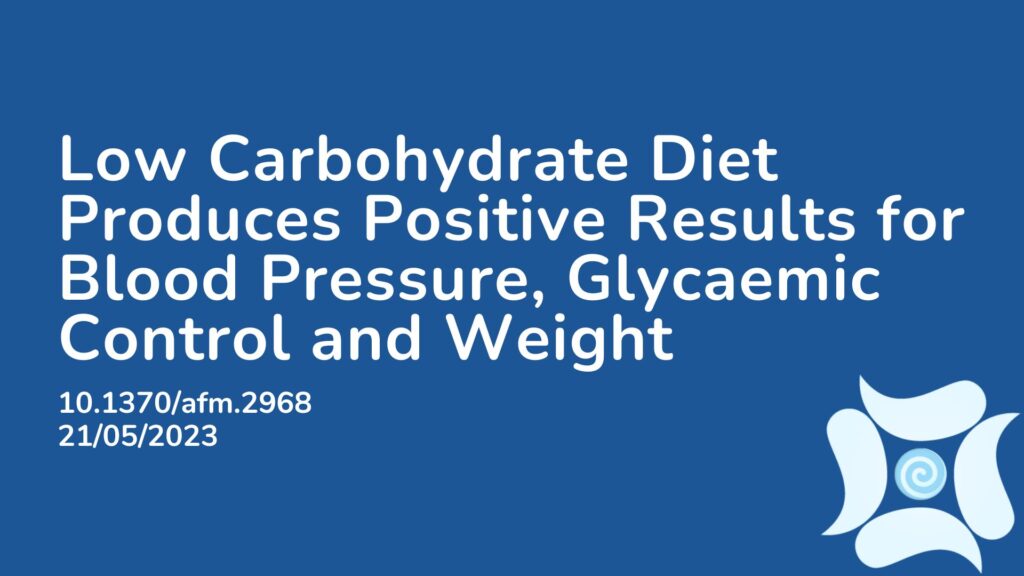Summary:
Individuals who have high blood pressure, type 2 diabetes, and/or obesity are at increased risk of complications with their health such as renal disease, heart attack, stroke or premature death. Each of these conditions are highly prevalent in the US, with almost half of American adults having high blood pressure and almost 45% with obesity. Multiple research papers suggest that first-line interventions for these conditions should be dietary and lifestyle changes, however there is no consensus on which diet should be recommended first. The purpose of this paper was to compare two popular diets for heart and metabolic health; The Dietary Approaches to Stop Hypertension (DASH) diet and a very low-carbohydrate (VLC) diet, also known as the ketogenic diet. The DASH diet is rich in dietary fibre from fruit, vegetables and whole grains, and low in total fat and sodium. The VLC diet includes higher fat intake, moderate protein and very low-carbohydrate. The DASH diet is historically recommended for heart health and high blood pressure, whilst the VLC diet is usually recommended to manage glycaemic control. In this study, the researchers randomized 94 adults who had high blood pressure, prediabetes or type 2 diabetes, and were overweight or obese, and compared a VLC diet with a DASH diet. The paper also compared other factors such as mindful eating, emotion regulation, available social support and cooking ability. The results showed that the VLC diet was more favourable for individuals with hypertension, prediabetes or type 2 diabetes, and obesity in terms of blood pressure, glycemic control, and weight. These findings indicate that larger and longer follow-up period trials are needed to elucidate whether the VLC diet is more beneficial for disease management for these high-risk individuals, when compared with the DASH diet.
Abstract:
PURPOSE Adults with a triple multimorbidity (hypertension, prediabetes or type 2 diabetes, and overweight or obesity), are at increased risk of serious health complications, but experts disagree on which dietary patterns and support strategies should be recommended. METHODS We randomized 94 adults from southeast Michigan with this triple multimorbidity using a 2 × 2 diet-by-support factorial design, comparing a very low-carbohydrate (VLC) diet vs a Dietary Approaches to Stop Hypertension (DASH) diet, as well as comparing results with and without multicomponent extra support (mindful eating, positive emotion regulation, social support, and cooking). RESULTS Using intention-to-treat analyses, compared with the DASH diet, the VLC diet led to greater improvement in estimated mean systolic blood pressure (−9.77 mm Hg vs −5.18 mm Hg; P = .046), greater improvement in glycated hemoglobin (−0.35% vs −0.14%; P = .034), and greater improvement in weight (−19.14 lb vs −10.34 lb; P = .0003). The addition of extra support did not have a statistically significant effect on outcomes. CONCLUSIONS For adults with hypertension, prediabetes or type 2 diabetes, and overweight or obesity, the VLC diet resulted in greater improvements in systolic blood pressure, glycemic control, and weight over a 4-month period compared with the DASH diet. These findings suggest that larger trials with longer follow-up are warranted to determine whether the VLC diet might be more beneficial for disease management than the DASH diet for these high-risk adults.
Article Publication Date: 21/05/2023
DOI: 10.1370/afm.2968




